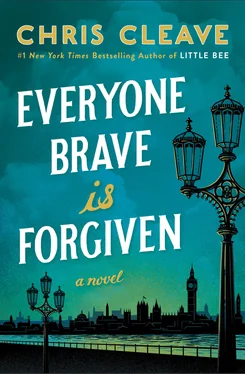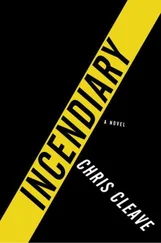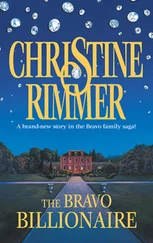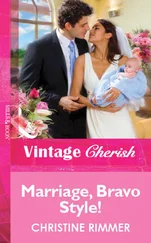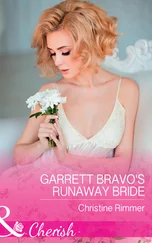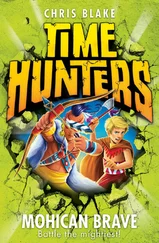“I hardly know myself. Never mix wine and whisky, that’s an order.”
“Not unless you’re buying again, sir.”
Alistair moved from man to man, keeping it light. Under the chatter the men shook with anger. When it was time to face the Germans again, the grudge would be particular.
His fellow officers returned singly or in pairs, looking rather better off than he, and they all set to work to re-form the pacified and compliant men into the sterner geometries of war. On the station concourse the men lined up quite docilely in their ranks while the officers puffed on pipes and took the roll call and made sardonic inquiries concerning the men who were still AWOL. At nine, with the half-past raising steam at the platform and the men lining up to board, Alistair felt the universe returning to a bearable configuration.
He looked up from the company list and saw Mary arriving on the concourse in the dress she had worn the day before, conspicuous amid the uniforms. She carried his duffel bag, which he had left at the Lyceum.
His body’s first instinct was to take cover. She hadn’t seen him yet. He could easily just board the train, and he knew he ought to. Instead he waited and smoked his pipe. He could not stop watching her. He was a little sick at himself for it, but he was too tired now to be a saint.
As the men headed for the platform and their ranks thinned, Mary spotted him, broke into a smile and waved. He caught himself waving back, his chest tightening, immediately guilty now that the choice could not be unmade. She hurried over, and then her face fell and she stopped a yard short.
She said, “I was worried something might have happened to you.”
“It did. I popped into town and collected this hangover.”
“It suits you.”
“It’s a little tight around the temples. The others are all right, I hope?”
“I told them I was going home to check up on Mother and Father.”
“Well, now you can.”
She looked down. “You wish I hadn’t come, don’t you?”
He tapped out his pipe. “It might have been better.”
She looked up with a spark of anger. “I am in love with Tom, you know.”
“That’s good.”
“He is the gentlest man.”
“ ‘Well, you know, I like him myself.”
“I’m sure we shall be married.”
“And I’m sure I’ll be delighted for you. Let me know if you need a bridesmaid.”
They stood without speaking, while the last of the soldiers lugged bags toward the train and steam began to hiss from the locomotive.
Mary set down his duffel bag on the platform between them.
“Thanks,” said Alistair.
“Hilda was furious.”
“That’s what you came to tell me?”
She closed her eyes. “I came to make sure you were all right.”
“ ‘Well, now you can tell Hilda I’m all right.”
“Must you be so…?”
“I’m sorry,” said Alistair.
“No, I am. I’m just very tired.”
“We’ll both feel better after a night’s sleep.”
She managed a smile. “Yes, I’m sure we shall.”
The locomotive’s boiler hissed louder. Alistair watched the last of the men boarding. He nodded to the officers who stood on the platform, watching this presumed lovers’ parting with theatrical amusement.
He turned back to Mary. “Look, yesterday was—”
“Wasn’t it? Maybe I was wrong to bring Hilda. I hope you didn’t feel too set up?”
“It was sweet of you and Tom to do the up-setting.”
“I just didn’t think you’d be so…”
Alistair waved it away. “Hilda is lovely. I’m sure if there’d been more than twenty-four hours…”
“If there had been more time, or less, it all would have been easier. If it’s an hour, one can say what one likes. If it’s a year, one can be what one is like. A day is exactly the wrong length of time to be oneself in, don’t you think?”
She looked at him desperately. He took a step toward her but the locomotive blew its whistle.
She said, “You should go.”
He held her eyes. “Yes. Goodbye.”
“Goodbye.”
He picked up his duffel bag and turned to go.
Mary said, “I hope you’ll be all right.”
Alistair turned back. “You’ll be very happy. Tom is the best man I know.”
She paused.
“Tom always told me you were funny. I hadn’t for a minute imagined you would be so terribly sad.”
Alistair set down his bag, put his hands in his pockets, and stared at his shoes for a moment.
“I’m hopeful,” he said. “Aren’t you?”
“Hopeful that what?”
“That this war does as much good as harm.”
“You sound like the government posters.”
He smiled. “After the war there’ll be less distance between us all.”
“Is that your theory?”
“I can prove it. Last night the men and I were on the back streets, to see if we could make ourselves useful. There was an old man we helped, in the wreck of his house in a bathtub he’d been sheltering in. It was half full of water from the hoses and when we got to the man, he scrubbed his back with a loofah to make us laugh. The whole street torn to shreds, and all of us in stitches. Don’t you see? It makes me think there’s hope.”
“Promise me you’ll hold on to that.”
“Oh good lord, yes. Rather that than a loofah.”
She laughed then, brightly and without complication, and he laughed too, and for a moment the war with its lachrymose smoke was blown away on a bright, clean wind. Alistair marveled that she could do such a thing with the tiniest inflection of her mouth and the lightest look in her eye: even exhausted, in yesterday’s dress with her hair disheveled, she could make the distance between them disappear.
The whistle screamed again and an officer yelled from the platform for Alistair to board.
“Well, goodbye,” said Mary. “Don’t let the Germans take all the best seats.”
“Goodbye, Mary. Good luck.”
He shouldered his duffel bag and walked away down the platform. This was the end of it, he knew — they could give each other nothing more. There was a perfect sadness to it, but as the train took him back to the war and its hard hours issued singly, it wouldn’t do to think of her. He left her where she was: fragile but intact beneath the hot black smoke that rose a mile above the wounded city.
HILDA PICKED HER UP at noon and they took a cab east to look at the damage. Hilda wore black: melodramatic, Mary thought. With a handkerchief to press to her face in case of smoke and dust. And knee-high lace-up boots, since one couldn’t anticipate the conditions underfoot. It seemed to Mary that Hilda was dressed for something between a funeral and Passchendaele. Mary had opted for pumps and a light blue day dress.
When they got to Bow she saw that Hilda had been right. Every window was out. In the bright sun, glass lay everywhere, so that if one half closed one’s eyes the streets bejeweled. Pavements were undulant, walls bowed, streetlamps wilted by heat. The city’s perpendiculars were defeated: it was as if the bombs had reserved a particular spite for right angles. The pipes were cracked too, and marshy water pooled in every new depression. Children splashed. The pigeons spritzed their wings in it.
Their road was blocked by rubble, and the driver pulled up. Hilda opened the door and hot air rolled in, heavy with soot and sewage. Everything smoked or steamed, as if one had crossed into a tropic of disaster. From the gaping fronts of bombed-out houses, the dazed locals stared. Mary stepped out of the cab into a puddle that leached foul-smelling mud through her shoe and into her stocking.
“Don’t you think we should go straight back?” she said.
Читать дальше
